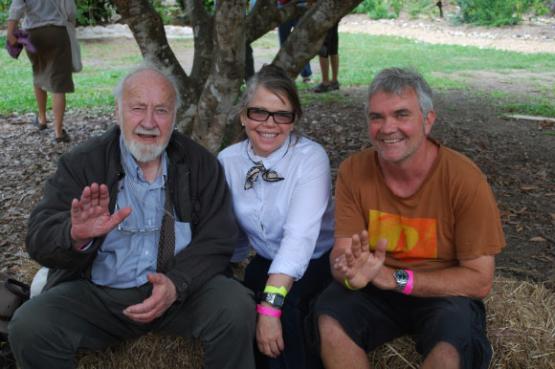First Loser
2 min read
Another peculiar part of the American identity is always wanting to be first. In our professional sports leagues we don’t give respect to the runner-up, we venerate the champion. It’s all or nothing. If you’re not winning, you’re failing. The American psyche wants to identify with a winner. The clothes we wear, the car we drive, the house we live in, the parties weʼre seen at somehow make us part of the winning scene.
The arena of American wine is similar. Our consumers live by the reviews of Wine Spectator and Wine Advocate. Here’s a scene I’ve witnessed too many times. Someone walks into a wine shop with one of these guides tucked under their arm and asks the storekeeper for a particular, highly-rated wine. The seller says no, but I do have a wine from the same grape and region at a lower price and maybe better quality. And our consumer passes. Why? Because our consumer wants the bonafide winner. He wants to show off to friends, or make his way through the tables of a favorite three-star restaurant, cradling the bottle like a baby, label in clear sight.
In the late 80s I received a spate of good reviews from Robert Parkerʼs Wine Advocate. Bob came to the winery one day and I have to say heʼs a great guy, very down to earth. He seemed to appreciate what we were trying to do. As the Advocate made its way by mail across the country I would field phone calls from wine consumers who wanted to buy the well-reviewed wine.
However, I produce a very old school California style Zinfandel, with a bit, and sometimes a lot, of residual sugar but always with a brisk and balancing acidity. So many consumers were thrown by this residual sugar and gave up on the wine because for them red wine was supposed to be dry. One drinker called and said, this Zin has residual sugar. I said, indeed it does. He said, Parker didn’t say anything about that.
Parker claimed that he could be in the middle of a Bordeaux tasting and someone would ask about a review he wrote about one of my wines. It drove him mad. Toward the end, some of the reviews he wrote about Coturri wines were quite humorous: “None of my reviews provoke more controversy than those of Coturri. For every reader who writes to thank me for turning them on to these organically made, unfined, unfiltered, unsulfured wines, there are others who have accused me of consuming excessive amounts of illegal substances before tasting Coturri’s wines, or, even worse, just incompetence.”
The Wine Advocate reviews stopped in the 90s. Ultimately, whether or not this happened because my wines didn’t match the expectations of their readership I will never know but what it made me realise was that the average drinker really does carry a very narrow view of quality and has a very low tolerance of the unsual, which – for the most part – seems to have been defined by a ‘higher authority’. So if I don’t get the coverage, this average drinker will likely not carry my wine past the tables of that favorite three-star restaurant.
The American psyche doesn’t want finesse or subtlety or anything that pushes too hard against expectation. We want someone to tell us what is good, and we want it to be safe. We love the 90-point wine like we love the home run in baseball or the knockout in boxing. We love the no-doubter. So often great wines are dismissed because they donʼt have name recognition or great reviews. Because they don’t wear the “winner” label. But they can deliver such pleasure and satisfaction. We need to learn to engage and trust our own senses, and to unlearn most everything else.
Tony Coturri
Glen Ellen, California
12 May 2015


